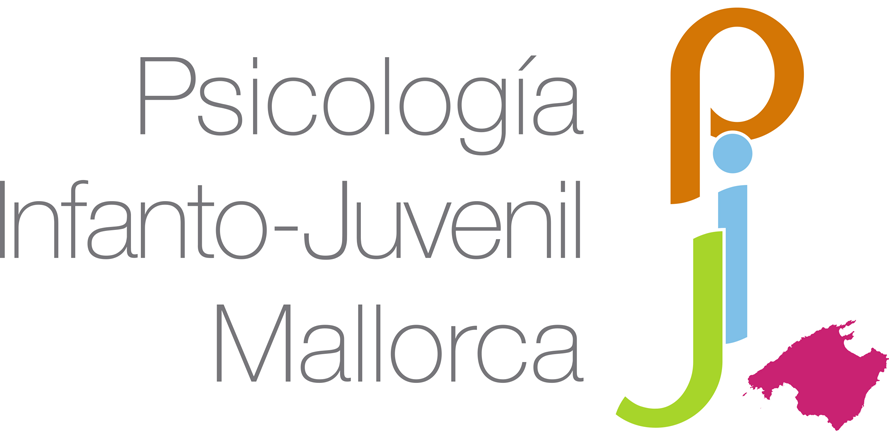POLÍTICA DE COOKIES Y ALMACENAMIENTO LOCAL
Política de cookies:
Según la Ley 34/2002, de 11 de julio, de Servicios de la Sociedad de la Información y Comercio Electrónico le informamos de que este sitio web usa Cookies para mejorar y optimizar la experiencia del usuario. A continuación encontrará información detallada sobre qué son las “Cookies”, qué tipología utiliza este sitio web, cómo cambiar la configuración de sus cookies, y qué ocurre si las deshabilita.
¿Qué son las cookies?
Una cookie es un fichero que se descarga en su ordenador al acceder a determinadas páginas web. Las cookies permiten a una página web, entre otras cosas, almacenar y recuperar información sobre los hábitos de navegación de un usuario o de su equipo y, dependiendo de la información que contengan y de la forma en que utilice su equipo, pueden utilizarse para reconocer al usuario.
¿Qué tipos de cookies utiliza esta página web?
Según la entidad que las gestione, las cookies pueden ser: Cookies propias : Son aquellas que se envían al equipo terminal del interesado desde un equipo o dominio gestionado por el propio editor y desde el que se presta el servicio solicitado por el usuario.Cookies de terceros: Son aquellas que se envían al equipo terminal del usuario desde un equipo o dominio que no es gestionado por el editor, sino por otra entidad que trata los datos obtenidos a través de las cookies.
El Sitio Web utiliza tanto cookies propias como de terceros.
Según el plazo de tiempo que permanecen activadas: Cookies de sesión: Son un tipo de cookies diseñadas para recabar y almacenar datos mientras el usuario accede a una página web. Se suelen emplear para almacenar información que solo interesa conservar para la prestación del servicio solicitado por el usuario en una sola ocasión (p.ej. una lista de productos adquiridos).Cookies persistentes: Son un tipo de cookies en el que los datos siguen almacenados en el terminal y pueden ser accedidos y tratados durante un periodo definido por el responsable de la cookie, y que puede ir de unos minutos a varios años.
El Sitio Web utiliza tanto cookies persistentes como cookies de sesión.
¿Para qué finalidades pueden ser utilizadas las cookies de la web?
Cookies técnicas: Son aquéllas que permiten al usuario la navegación a través de una página web, plataforma o aplicación y la utilización de las diferentes opciones o servicios que en ella existan como, por ejemplo, controlar el tráfico y la comunicación de datos, identificar la sesión, acceder a partes de acceso restringido, recordar los elementos que integran un pedido, realizar el proceso de compra de un pedido, realizar la solicitud de inscripción o participación en un evento, utilizar elementos de seguridad durante la navegación, almacenar contenidos para la difusión de videos o sonido o compartir contenidos a través de redes sociales.Cookies de personalización: Son aquéllas que permiten al usuario acceder al servicio con algunas características de carácter general predefinidas en función de una serie de criterios en el terminal del usuario como por ejemplo serian el idioma, el tipo de navegador a través del cual accede al servicio, la configuración regional desde donde accede al servicio, etc.Cookies de análisis: Son aquéllas que permiten al responsable de las mismas, el seguimiento y análisis del comportamiento de los usuarios de los sitios web a los que están vinculadas. La información recogida mediante este tipo de cookies se utiliza en la medición de la actividad de los sitios web, aplicación o plataforma y para la elaboración de perfiles de navegación de los usuarios de dichos sitios, aplicaciones y plataformas, con el fin de introducir mejoras en función del análisis de los datos de uso que hacen los usuarios del servicio.Cookies publicitarias: Son aquéllas que permiten la gestión, de la forma más eficaz posible, de los espacios publicitarios que, en su caso, el editor haya incluido en una página web, aplicación o plataforma desde la que presta el servicio solicitado en base a criterios como el contenido editado o la frecuencia en la que se muestran los anuncios.Cookies de publicidad comportamental: Son aquéllas que permiten la gestión, de la forma más eficaz posible, de los espacios publicitarios que, en su caso, el editor haya incluido en una página web, aplicación o plataforma desde la que presta el servicio solicitado. Estas cookies almacenan información del comportamiento de los usuarios obtenida a través de la observación continuada de sus hábitos de navegación, lo que permite desarrollar un perfil específico para mostrar publicidad en función del mismo.
Cookies propias
Nombre Dominio Duración
ANnoElGaWR_
psicologiainfantilmallorca.com
al día
ZeDOrRxVc
psicologiainfantilmallorca.com
al día
OPQjcGKa_TCntuSv
psicologiainfantilmallorca.com
al día
dQ_tKeuinJgZhFWM
psicologiainfantilmallorca.com
al día
joinchat_views
psicologiainfantilmallorca.com
al día
Cookies de Terceros
Nombre Descripción Proveedor información
Google Analytics
Cookies de Google Analytics. Generan un ID de usuario anónimo, que es el que se utiliza para hacer recuento de cuantas veces visita el sitio un usuario. También registra cuando fue la primera y la última vez que visitó la web. Asimismo, calcula cuando se ha terminado una sesión, origen del usuario, y keywords.
Google
Ver
¿Qué ocurre si se deshabilitan las Cookies?
Algunas funcionalidades de los Servicios y áreas de este sitio web podrían no funcionar correctamente si se deshabilitan las cookies.
¿Actualizamos nuestra Política de Cookies?
Es posible que actualicemos la Política de Cookies de nuestra página web, por ello le recomendamos revisar esta política cada vez que acceda a nuestro sitio web con el objetivo de estar adecuadamente informado sobre cómo y para qué usamos las cookies.
¿Cómo puede configurar y/o rechazar sus Cookies?
Al clickar en “ENTENDIDO” y continuar en nuestro sitio web, estará consintiendo el uso de las Cookies en las condiciones contenidas en la presente Política de Cookies. Usted como usuario tiene la posibilidad de ejercer su derecho a bloquear, eliminar y rechazar el uso de Cookies, en todo momento, modificando las opciones de su navegador. Por ejemplo:
Microsoft Edge : Configuración> Configuración Avanzada> Cookies.
Consulta el soporte de Microsoft o la Ayuda del navegador.
Mozilla Firefox : Herramientas> Opciones> Privacidad> Historial> Configuración Personalizada.
Consulta el soporte de Mozilla o la Ayuda del navegador.
Google Chrome : Configuración> Mostrar opciones avanzadas > Privacidad> Configuración de contenido.
Consulta el soporte de Google o la Ayuda del navegador.
Safari (Apple) : Preferencias> Seguridad.
Consulta el soporte de Apple o la Ayuda del navegador.
Opera (Opera Software): Configuración > Opciones > Avanzado > Cookies
Consulta el soporte de Opera o la Ayuda del navegador.
Si usa otro navegador, consulte su política de instalación, uso y bloqueo de cookies. No obstante, usando la herramienta www.youronlinechoices.com , podrá encontrar información útil y configurar, proveedor por proveedor, sus preferencias sobre las cookies.
¿Sólo existen cookies?
Puede ser que haya webs que usen otras formas de almacenamiento similar a las cookies pero con más capacidad, como otras formas de almacenamiento local de datos en el equipo del cliente, por ejemplo:
LocalStorage y sessionStorage de HTML5: Espacio que la web puede usar en el equipo del usuario. Normalmente borrando el historial de Navegación se pueden borrar.
Los “Local Shared Objects” de Flash (el “isolated storage” de Silverlight): Se almacenan dentro de la carpeta de Microsoft de donde tiene el perfil de usuario. Hay que entrar en la carpeta y borrarlo. (Ejemplo: los videos de vimeo).
El web beacon sirve para rastrear tu actividad, insertando una mini-imagen de la que ni siquiera te percates. Cuando navegas por la web, se te carga junto con la página, y el servidor de dónde se descarga la foto, registra la hora del acceso, o las veces que has accedido.
Estos archivos son más intrusivos que las cookies, ya que son más complicados de eliminar, guardan más información, y son independientes al navegador que se use. Nosotros no usamos este tipo de almacenamiento.






